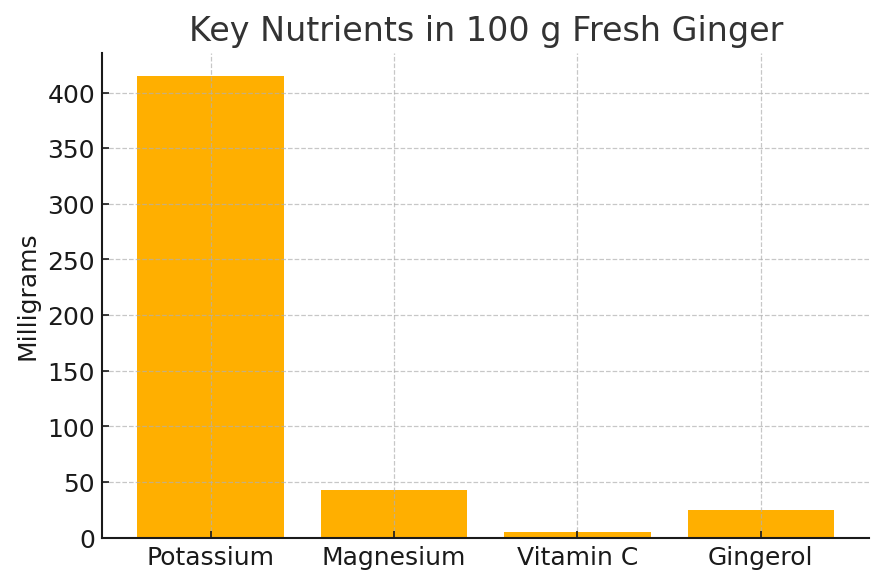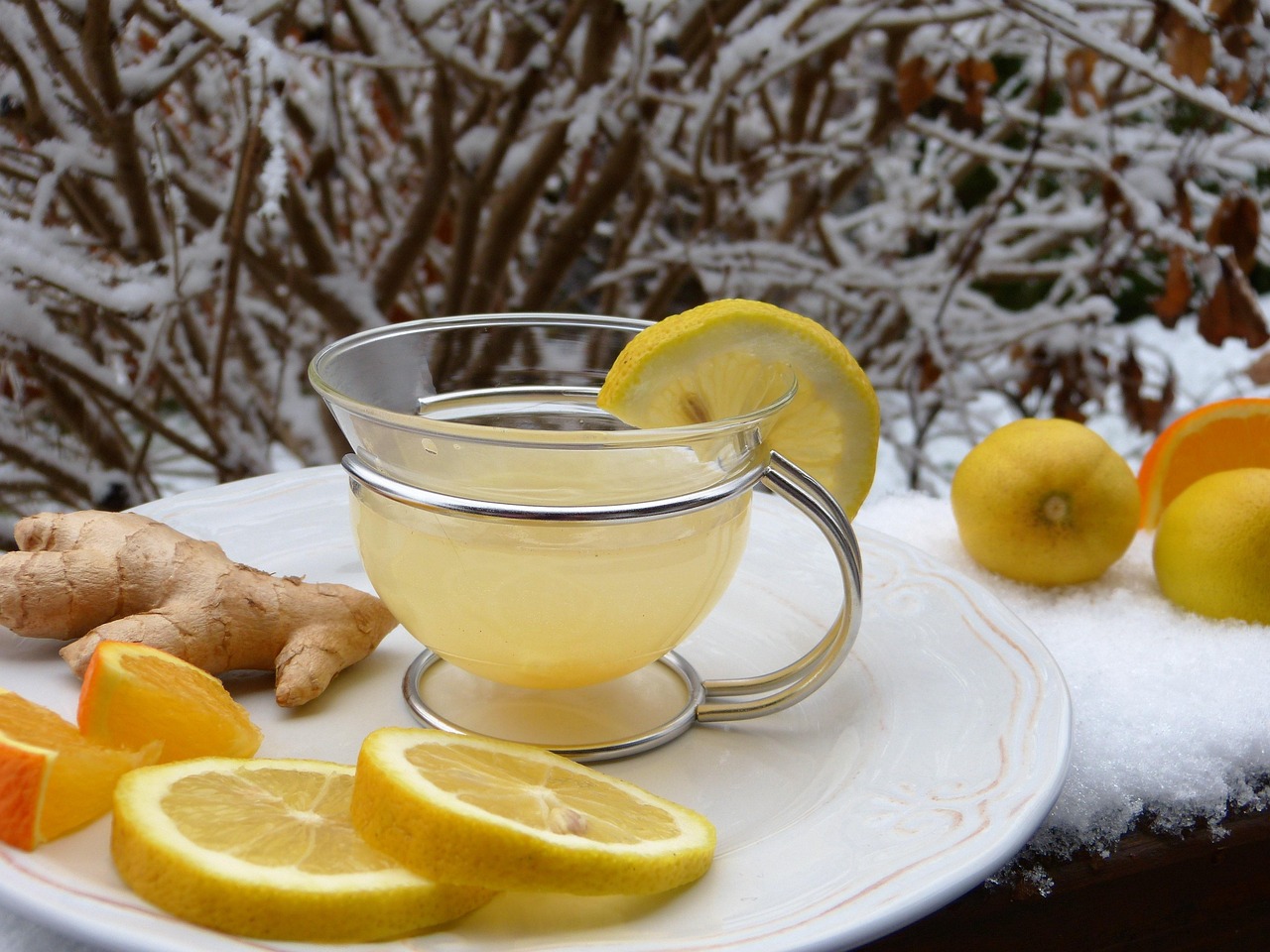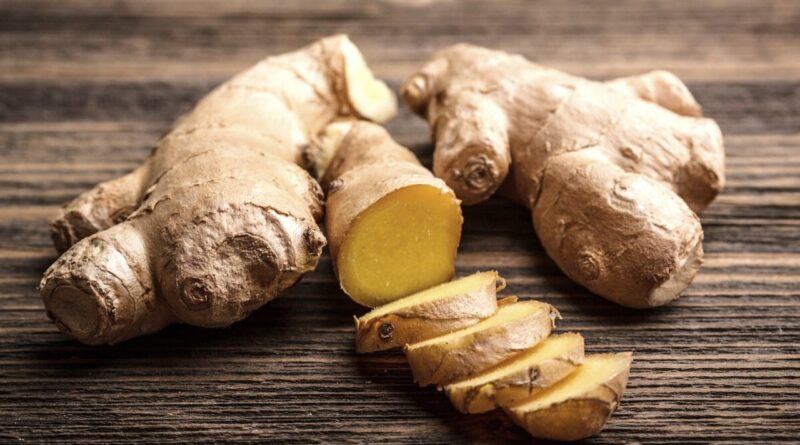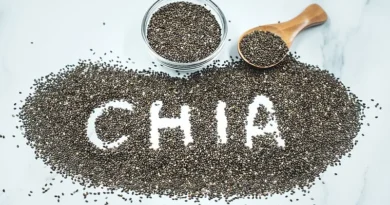Can Ginger Slow Aging? What New Studies Now Confirm
Quick Read (TLDR)
A daily thumb of fresh ginger or a five-hundred-milligram capsule can lower inflammation, cut oxidative stress, and support collagen. Regular use improves skin smoothness, digestion, and immune resilience, with virtually no downside for healthy adults.
The Ageing Puzzle and Why Ginger Matters
Every cell in the body is under constant attack from free radicals and low-grade inflammation. Over time, DNA errors build, collagen thins, and mitochondria slow. Lifestyle changes, especially dietary bioactives, can blunt that damage. Among the most compelling natural options are the benefits of ginger for aging, which modern trials are beginning to confirm in detail. Ginger, known in botany as Zingiber officinale, has long been used in Chinese and Ayurvedic medicine. Today, researchers place gingerol—the pungent phenol in the root—among the few plant compounds that influence several recognised hallmarks of ageing at once.

Key Bioactive and Nutrient Snapshot
| Compound or nutrient | Typical amount in one hundred grams fresh root | What it does |
|---|---|---|
| Gingerol family | variable, about twenty to thirty milligrams | Potent antioxidant, calms nuclear factor kappa B signalling |
| Potassium | four hundred fifteen milligrams | Regulates cell hydration and nerve conduction |
| Magnesium | forty three milligrams | Supports energy production and muscle relaxation |
| Vitamin C | five milligrams | Helps collagen synthesis and immune defence |

How Ginger Slows the Ageing Clock
Clinical and laboratory data show that ginger achieves five important effects.
- It reduces inflammatory messengers such as interleukin-6 and tumour necrosis factor alpha.
- It sweeps away free radicals, which cuts lipid peroxidation markers like malondialdehyde.
- It activates Nrf2, a genetic switch that commands cells to make their own antioxidant enzymes.
- It blocks matrix metalloproteinase one, the main enzyme that breaks down collagen after sun exposure.
- It supports proper turnover of mitochondria, a process called mitophagy, that keeps energy output high.
A 2024 meta-analysis reported significant reductions in systemic oxidative markers when volunteers took ginger for eight weeks or longer.
Visible Benefits You Can Expect
Skin support
Participants in a twelve-week human trial who consumed two grams of ginger daily showed smoother skin texture and improved elasticity scores. The change correlated with lower oxidative markers.
Hair resilience
Animal work suggests topical ginger extract keeps more follicles in the growth phase by improving microcirculation. Early human pilot studies are in progress.
Muscle and joint comfort
Ginger reduces post-exercise soreness and joint stiffness, likely through its anti-inflammatory effect, helping older athletes maintain training volume.
Digestive balance
Ginger stimulates gastric emptying and digestive enzyme flow, which improves nutrient absorption and reduces toxin load that otherwise stresses cells.
Immune readiness
A recent review in Frontiers in Pharmacology concluded that ginger modulates both innate and adaptive immune cells, helping the body resist infection and chronic disease.
If you’re interested in natural ingredients that support both body and mind, explore other remedies like broccoli microgreens, which show promising effects on cognitive function and mental clarity.
Practical Ways to Use Ginger
| Form | Standard amount | Best application | Pro tip |
|---|---|---|---|
| Fresh root | one to two grams, about a thumb | Stir fries, oatmeal, tea | Keep peeled pieces in the freezer, grate while frozen |
| Dry powder | half teaspoon, about one gram | Smoothies, baking | Pair with a pinch of black pepper to aid absorption |
| Slow simmer tea | three thin slices in hot water ten minutes | Daily tonic for digestion | Add lemon for extra flavonoids |
| Standardised capsule | five hundred milligrams, one or two times daily | Consistent dosing during travel or busy weeks | Choose GMP certified brands with third party testing |

Safety and Who Should Pause
Ginger carries the Generally Recognised As Safe classification from the United States Food and Drug Administration. Mild heartburn or loose stool can appear above four grams daily. People who take anticoagulant medicine should consult a clinician before large supplemental doses, because ginger may gently prolong bleeding time.
Looking to build on the anti-aging effects of ginger? You might also enjoy our breakdown of the 30-Day Blueberry Challenge, another food shown to protect the brain and body with powerful antioxidants.
Conclusion
Ageing will continue, but the rate is flexible. Consistent ginger intake has a measurable impact on inflammation, oxidative stress, collagen integrity, and energy metabolism. The root is inexpensive, easy to cook, and supported by growing peer-reviewed evidence. Add a slice to evening stir fry, sip a cup of ginger tea tomorrow morning, or bring capsules on your next trip. Small daily choices compound into a younger biological profile over time.
Frequently Asked Questions
Can ginger replace topical retinol or vitamin C products?
Ginger works from the inside, while topical actives work at the surface. Using both approaches gives the best result.
Is raw ginger better than cooked?
Cooking converts part of gingerol into shogaol, which shows even stronger anti-inflammatory action in lab studies. Both forms are useful.
I already use turmeric, do I also need ginger?
Curcumin and gingerol overlap in some pathways, but each has unique targets. Taking both provides a broader shield.
When during the day is best?
Morning tea supports digestion, a post-workout smoothie aids recovery, and an evening capsule can help if spicy food causes reflux.
Is ginger safe during pregnancy?
Up to one gram daily is commonly used for morning sickness under medical guidance. Always confirm with an obstetrician before starting.
Reference List
- Chen H, Liu X, Meta analysis of ginger supplementation and oxidative stress, Nutrition, two thousand twenty four.
- Di Lorenzo C, Gillespie E, Immunomodulatory potential of gingerols, Frontiers in Pharmacology, two thousand twenty two.
- Zhang Q, Wei L, Six gingerol activates Nrf two signalling, Journal of Functional Foods, two thousand twenty four.
- Lee J, Park S, Dietary phytochemicals and collagen preservation, Comparative Biochemistry and Physiology, two thousand twenty four.
- Forouzanfar F, Shakeri F, Ginger effects on hallmarks of ageing, Biomolecules, two thousand twenty four.
J.D. Wilson is an Integrative Health Specialist, Certified Meditation Teacher, and author of The Comfort Trap: The Quiet Cost of an Unchallenged Life. He founded Fitsnip.com to translate complex research into practical systems for longevity and mental clarity.
About: https://fitsnip.com/about




